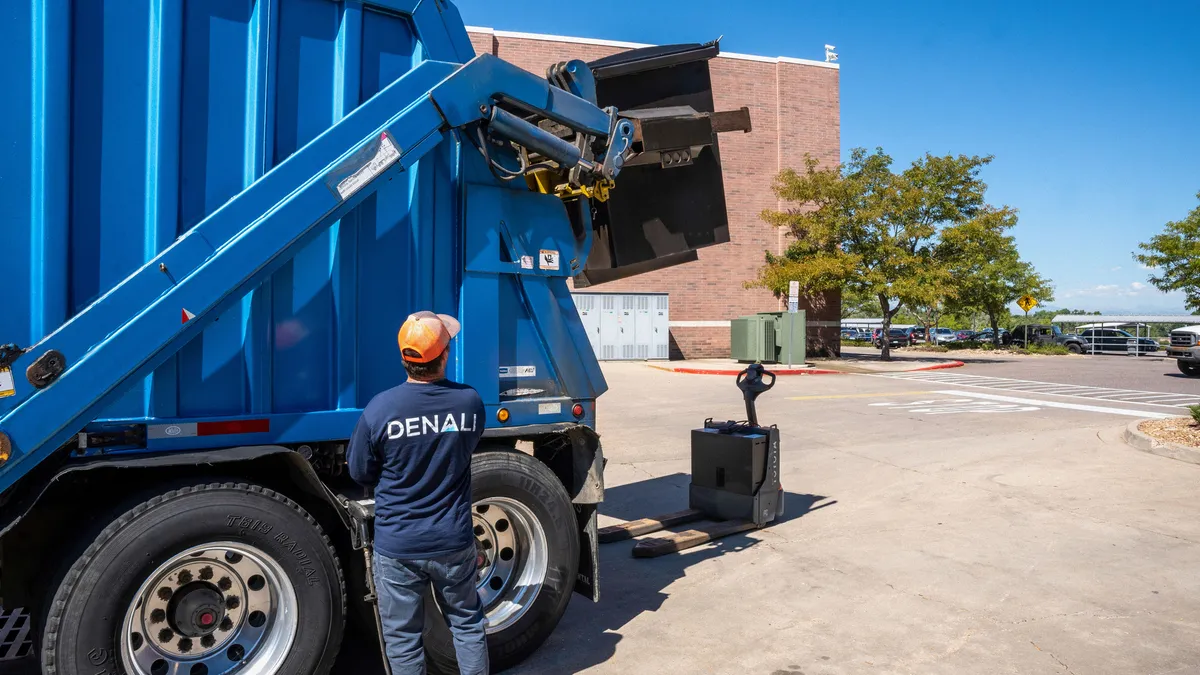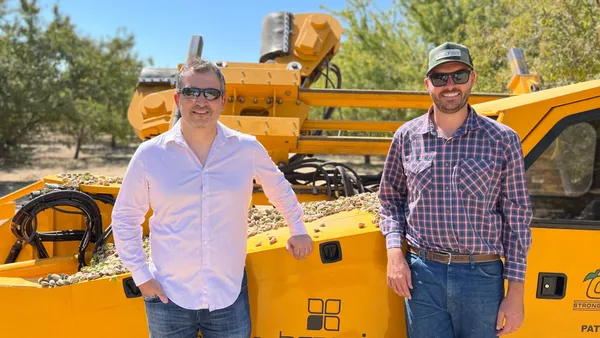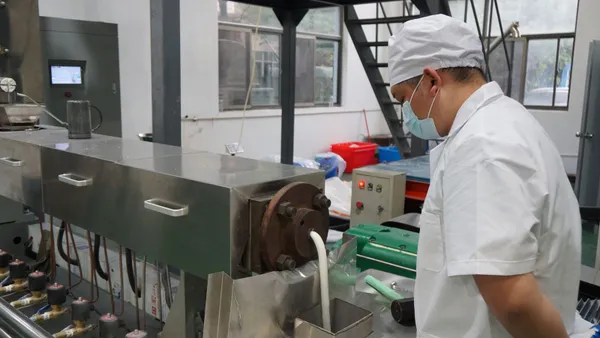Dive Brief:
-
Denali has renewed its agreement with Walmart to reclaim food waste from the nation’s largest retailer for agricultural uses, the recycling provider said Tuesday.
-
Through the partnership, millions of pounds of inedible food from 4,700 U.S. Walmart stores will be diverted from landfills and turned into compost, animal feed or renewable energy, according to a news release. In addition, the companies plan to explore emerging opportunities that curb and reduce food waste.
-
With continued advancements in technology, Denali is expecting the amount of waste diverted from landfills will significantly grow over the next five years as corporations and federal agencies work to meet sustainability goals.
Dive Insight:
Walmart is aiming for operations in Canada, Japan, the U.K. and the U.S. to achieve zero-waste by 2025. Last fiscal year, the company diverted 78% of its global operational waste — such as cardboard, plastics, unsold food, signage and carts — from landfills and incinerators, with most being recycled or reused.
Denali, a recycler for some of the largest food processing and retail companies in the U.S., is able to take food waste and transform it into reusable products through its network of facilities and partners. The Russellville, Arkansas-based company works with compost manufacturers, local farms and anaerobic digesters to divert waste streams from landfills.
“Walmart is a leader and innovator in making retail more sustainable,” Denali CEO Todd Mathes said in a statement. “Denali is proud to provide services that bring Walmart closer to its goal of zero waste in its U.S. operations by 2025.”
Denali has its roots in the poultry industry as a recycler of residuals from processing plants. The facilities often use a lot of water that goes through a cleaning process, where nutrient-rich material is collected and turned into fertilizer for farmers.
In the last year or so, Denali has diversified its operations beyond fertilizer, working with the likes of Kroger, Tyson Foods, Campbell’s and other companies to convert their byproducts into useful materials.
As part of Walmart’s zero waste commitment, the Bentonville, Arkansas-based retailer has a goal to reduce its global food waste 50% by 2030 compared to 2016, mirroring lofty goals set earlier by the U.S. Department of Agriculture and U.S. Environmental Protection Agency.
Walmart reported a 26% reduction in food waste and inedible parts for fiscal year 2020, but growth slowed to 12% as of last year.
About 906 million pounds of diverted food waste was destined for animal feed, biochemical processing, composting or anaerobic digestion, according to 2022 company data. But 1.3 billion pounds of Walmart’s waste still ended up in landfills or incinerators.











